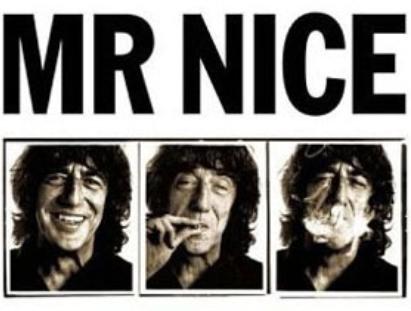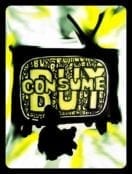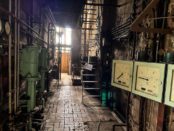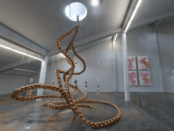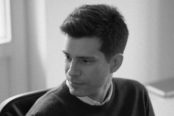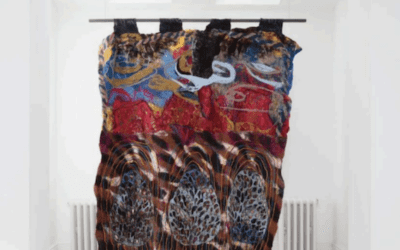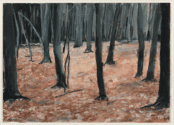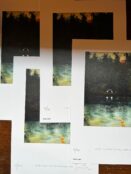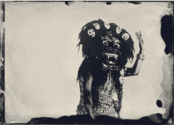Howard Marks has become something of a cult-celebrity since his release from prison in 1995. After spending the majority of his life smuggling hashish around the world, Howard appears to have settled down and is enjoying his new life as a stand-up comic and political activist.
His new novel, ‘Senor Nice’, recounts his experiences going straight as he travels around his native Wales and then South America. An entertaining sequel to his hugely successful autobiography ‘Mr. Nice’, the book concerns Marks’ search for his outlaw ancestors amongst the Welsh communities of the world, a topic he carries off with typical charm and panache.
Trebuchet: Your new book, Senór Nice, is that available in the shops right now?
Howard Marks: It certainly is.
And you’re promoting it on your current tour right?
Howard Marks: Yes, it’s in hard-back now but it’s available to those who want it.
Well I’ve got a preview paper-back version here.
Howard Marks: Ah, they always give you the cheap ones don’t they (laughs). Terrible isn’t it?
Well…I didn’t pay for it. But I would Howard honestly.
Howard Marks: I believe ya (laughs).
Ok, your book is about discovering Wales, in a sense. Why was it important for you to rediscover Wales at this time?
Howard Marks: Well mainly because I didn’t have the opportunity before! I suppose, partly because I spent a long time away from Wales, at university and in prison and so forth, and spent an awful lot of my youth actually trying to get out of there. When I was writing Mr. Nice I did some research into my ancestry but there wasn’t a whole lot of time for that – I was running into deadlines and had to abandon that. So I thought I’d pick it up again when I eventually got the contract for another book. So that was one of the motivations, having spent so long away, and a sense of unfinished research.
In the book you say that you are entering a new phase of your life now, from being infamous for one thing to being quite famous as a writer and stand-up.
Howard Marks: Yes that’s true. I suppose that I’m famous now for being the greatest failure in the dope industry (laughs). Fame is not something you want in the dope industry at all!
You went back to Oxford to do a reading recently. Do you go back every year?
Howard Marks: Yeah it works out as about once or twice a year now. I go to the reunions and things about once every seven years, meet up with some old friends. I think there’s one next March so I shall certainly be back for that one. In fact I’ve made every one so far despite the times in prison, which was quite often (laughs).
What are these reunions like for you as a famous alumnus?
Howard Marks: I enjoy them. You see people you haven’t seen for a long time and it’s often quite refreshing to see that their characters haven’t changed that much, or at all!
Would you say your own character has changed much over the years, what with the times spent in prison?
Howard Marks: Sure, as a result of being in prison definitely.
Sure. With the book Senór Nice, you end it with the statement: ‘Latin America’s roots and seas, my memories of growing up now come to me in flickering black and white images. In those days excitement came from far away, from the radio and the television…’ You say that this was the place to be, the valleys here and now. So the future is Welsh. What do you think it is about Wales that produces such characters as Captain Morgan, the Stereophonics, the Super Furry Animals and yourself of course?
Howard Marks: Probably adversity you know? Probably as a result of being fucked around. I think it’s true of Scotland as well. We were both fucked over by England in the past. And of course there was much objection to the Spanish – people didn’t like that very much. Captain Morgan hated Spain.
Why was that?
Howard Marks: Well he also hated Puritanism. He hated any kind of higher moral authority, was very uncomfortable with that.
So a fairly resistant point of view, held I suppose by all Welsh people. What’s do you think of the Welsh Assembly?
Howard Marks: Ah not much actually, so far. I mean we only just managed to get it passed – almost a triumph for English colonialism. So you know I’m not that impressed with it.
Do you have any high hopes for it and what it can achieve?
Howard Marks: Um, yes I mean anything that achieves enough autonomy to have our own drug laws would be good (chuckles).
Indeed. Now you’re quite politically active in the legalisation of cannabis…
Howard Marks: Well I was; I mean I’m often asked if I’m still campaigning, but I tend not to do it on the political platform any more. In some form I’m still consulted by certain groups, NORML for example, and I often do shows for the cause and suchlike. I give technical advice on running events and organisation.
How’s that going by the way? It doesn’t seem to get much press these days. I remember it being prominent during the ‘80s and ‘90s
Howard Marks: Well it used to be every day in the press you know. I think everyone’s bored shitless with it to be honest, people on the soapboxes banging on about how important it is to legalise cannabis. It is very boring to hear the same thing from them all the time. So it looks like music and comedy is the only way to try and change the laws now.
Mr. Nice was a very different sort of book from Senór Nice. It’s less of a diary, with many other things coming out through the story. There is a hint of the supernatural, with duppies and things like that. It seems like you’re becoming vaguely shamanic in later life, with your perceptions opening up.
Howard Marks: Well I’m not going to turn into a fucking guru anytime soon. At least I hope not. Maybe a role model for geriatrics…Although I suppose that position is already taken by Keith Richards. Well it should be, actually it’s more often Cliff Richard instead. In a funny way Keith could be thought of as the anti-Cliff.
So what’s your next book? What are you up to next?
Howard Marks: Well this is just very much on the drawing board, but probably another anthology called ‘Tripping’, which’ll be about twenty-five percent my own writing with the rest contributed by other writers. That’s what’s being talked about now, and I quite like that idea.
So are you going to put together the anthology from people you know or..?
Howard Marks: Well yes mostly. I did an anthology before, called ‘Dope Stories’, and enjoyed doing that so hopefully it’ll be a similar sort of thing. The interest for me is in sorting through and finding writing that I think is good. Given the amount of reading I’ve done I tend to be quite good at that – I can usually see if a piece is worthy or not after the first few lines. Anything that I enjoy I quite like enabling other people to enjoy, so there’s definite pleasure to be had from putting out stuff that I appreciate myself.
Yeah I was going to say I think we’ve picked that up about you (laughs). So were you around Ladbroke Grove in the 1960s and 1970s, when it was quite a vibrant, cultural area?
Howard Marks: Yeah, the ‘60s particularly, I lived in Notting Hill in the late ‘60s so I was around what was happening in Ladbroke Grove and Portobello Road.
Did you have much contact with Michael Hollingshead and Brian Barrett
Howard Marks: Yeah well I met them all, I mean I’ve got to know them better since because they were just slightly ahead of me in that game in a sense. I was a few years younger, but yes I met them all, had some fun…
What kind of things were going on, artistically and culturally, at that time?
Howard Marks: Well there was a lot of protest, lots of things hadn’t properly been addressed by then, like racism for example. There were a lot of anti-racism demonstrations, a lot of anti-Vietnam protests, a lot of pro-drug legalisation demonstrations, and a lot of anti-homophobic demonstrations. It was all part of a cultural, social agenda.
Looking back, do you think the protests were successful?
Howard Marks: Um, well I think it was successful in addressing certain issues that hadn’t been addressed before, I wouldn’t go so far as to say that they write their own songs now by any means. Quite clearly with the drugs issue there has been little progress, but with the others they were at least put on the agenda for discussion, and I think we have come a long way since.
I suppose there have been some major advances in the anti-discrimination area. Wasn’t it in the ‘60s and ‘70s that the bus-drivers went on strike because they were employing Caribbean people on the buses?
Howard Marks: Yeah that’s right. I remember being involved in a couple of demonstrations, throwing lion-shit at the police horses (laughs). It was the only way to get them to scarper if I remember right, instead they’ve got the sniffer dogs now and they are much harder to affect.
Now your movements in the ‘60s and ‘70s were based around London, Kabul, and all sorts of exotic places.
Howard Marks: Yes, London and the hippy trails mostly
What do you hate most about flying, or travelling?
Howard Marks: Um…well I quite like a lot of it actually. Obviously I don’t like it when flights are delayed and you feel like you’re living at the airport, and I still get slightly nervous on planes, putting my life in other people’s hands. A general fear of flying I suppose. Oh no the thing I hate worst is the cramped seating you have to tolerate now; trying to get your laptop out on an easyjet is an exercise in contortionism, it’s just impossible.
Yeah, if they let you use it at all.
Howard Marks: Yeah occasionally they don’t. There’s a lot of paranoia about terrorism now of course. The greatest change I’ve seen over the years is the huge rise in popularity of air travel. At the time I started travelling by air a lot it was quite a rarefied thing, and back then of course airlines were very much flag-carriers for the particular countries involved. Smoking as well, for example, they’ve stopped letting you smoke on planes (chuckles), which is terrible. They pretend it’s for some sort of health reasons, but really it’s so they don’t have to use quite so much air-conditioning to purify the air. I mean since when do the airlines give a fuck about our health?
Are you afraid of getting deep-vein thrombosis, given the amount you fly?
Howard Marks: Ah, well I wear the long stockings, but I put nicotine patches in them so I’m not sure how much good they do me.
Haha. So do you have a routine you go through when you fly?
Howard Marks: Well, obviously I smoke right up to the last minute. That’s critical. I always try to make sure that I don’t set the bleeper thing off, the metal detector, so I empty all the metal out of my pockets. I don’t want to give them any fucking excuse. Also did you know they have a little switch they can use to set it off? So they can say the beeper has gone off when it hasn’t really, and it’s just an excuse so they can say, ‘ok search this fucker.’
I didn’t know that! They have a little button they can use to set it off manually?
Howard Marks: Yeah. So if you’re not carrying any metal and it goes off, you know they’re on to you. So there’s a little tip for any dope dealers reading this (chuckles). I’ve got to say though, I do like the take-off and the landing parts, and I also like some of the vistas that you get to see as you are going up or down. It’s odd these problems with over-population we have when you can see all these massive empty spaces.
Our magazine, Trebuchet, is focused on Politics, Art and Culture, so we’re interviewing people like Stop the War, Damien Hirst, etc. What’s your opinion on the power of a magazine like ours to influence and activate people?
Howard Marks: Well I think it’s a worthwhile cause. These days, people are getting very wary about war being suddenly thrust upon us, as governments do occasionally for any fucking reason they make up. So I think it’s a very good idea to put the brakes on war-like thinking, and get people talking about whether this is what they want from their government. Generally they don’t. I think the best way to activate or provoke people would be, first, to get them to forget America, to totally ignore its existence!
What do you see as the worst aspects of America? What are they doing that you think is particularly bad?
Howard Marks: [unintelligible]
Do you think it’s simply ideological?
Howard Marks: No I don’t think it’s ideological at all, I think it’s simply because they can. The evidence has shown that if a country can bully the rest of the world then it will.
Well yeah I suppose England is another example of that.
Howard Marks: Yeah exactly, or Spain or France or any rich country. It’s just a shame that governments so often go against the generally good natured attitudes of their people.
Were you yourself bullied at school?
Howard Marks: No, no, I just didn’t like bullies. Still don’t. That’s not to say it wasn’t a rough and ready upbringing, there were fights and drinking and stuff. But there was also always a lot of humour growing up; I don’t know if that’s a particularly welsh thing or not. Welsh humour is a mixture of timing, like most humour, and being a bit self-effacing and always taking the piss. I suppose most humour is similar, one notable exception being the Japanese.
Why what’s Japanese humour?
Howard Marks: Well exactly. Who knows? Someone should tell them (laughs).
The reason I ask is that I was struck by the fact that, coming from Wales to Oxford at the time you did must have been a bit of a culture shock.
Howard Marks: Well back then yeah very much so. Not just the class divide which was a big thing but culturally, coming from Wales was a big difference. I was very much a fish out of water the first half-term there but it didn’t take too long to integrate.
Talking about class, do you think a class divide still exists in England?
Howard Marks: Well it still exists yeah. It’s getting eroded, thankfully. There’s less kind of certification in class now than there was, and long may that continue.
Personally I was under the impression, and this may only be a result of only having lived here seven years, that the middle class in England is actually disappearing.
Howard Marks: Yes I think that’s true, which generally is not a good sign because it increases the divide between the haves and the have-nots, at least the middle classes are a mixture of both.
Especially around West London, I’ve noticed. It really strikes me that people are quite clearly in one of two camps. Is there a similar thing in Wales?
Howard Marks: Well yeah we have our upper-classes, there are even Welsh wankers! I grew up in a working-class family, but I suppose they were the professional working class. By going to Oxford I supposed I hiked the family up a bit, although only until people found out about the drug-taking and drug-dealing. I guess I moved from a kind of local hero to a degenerate hippy-type.
Haha yeah. So what kind of reactions do you get from people now from being a famous ex-drug-dealer?
Howard Marks: Well the people I tend to meet tend to approve of that sort of thing, so I don’t encounter many hostile reactions from people who bother to come up to me. When I was standing for parliament and that there was hostility, definitely. But hostility is something you are going to encounter in politics no matter who you are, it’s part and parcel of the whole political experience.
Too true. So who’s your favourite politician at the moment?
Howard Marks: Ah at the moment..? God there’s not much to choose from, I don’t think I like any of them that much. I think Tony Benn still.
What about Hilary Benn?
Howard Marks: Umm…ok, ok, but Tony’s the one for me. He’s solid and consistent and strikes me as a man of complete sincerity, with the right kind of left-wing agenda as far as I’m concerned. I think it’s quite funny that he used to be Lord Stansgate and then became simply Tony Benn, via Gilbert Wedgewood.
What was your experience of the miners’ strike?
Howard Marks: Pretty horrific I suppose; they’re not days I look back on with any kind of fondness. They were seriously poverty-ridden days for lots of people and there was a lot of unpleasantness, especially in Wales. There was like forty percent unemployment rather than ten percent or something. Many people had trouble getting by, although there was no shortage of mischief (laughs), never any shortage of that.
Ok, coming back to Senór Nice, I was wondering if Bernie Davis, the huge fellow with massive tattoos, was ok with having his photograph taken?
Howard Marks: Yeah, he came to my show two days ago in Cardiff. He didn’t mind the photography at all. I actually met him at Glastonbury one year very randomly but through the Alabama 3. They facilitated the introduction and we soon realised we had friends in common and were from the same world etc., so we formed our own independent friendship. He’s part of the Firm, England’s only criminal organisation; shall we say he’s in the spotlight? (laughs)
Explain the Firm?
Howard Marks: Well traditionally British crime was fairly feudal; there was always like territorial wars between South London, which would be represented by Charli, and East London, which would be represented by the Krays. The Firm is an amalgamation I suppose; two different sets uniting against a common enemy (the old bill).
When did that happen?
Howard Marks: I suppose during the ‘80s really. When the Krays were obviously gone for lengths and attempts to get them out were failing; when the Krays were on their last legs basically.
How have people reacted to being in your books?
Howard Marks: With Mr. Nice I checked out with everyone that it was ok. In fact I got a couple of complaints from people about not being mentioned, kind of ‘I introduced you to him, not the guy you said’. And I was like, ‘yeah I was trying to protect you’, you know? Generally though it was fine.
Thanks very much Howard, good luck with your tour.
Howard Marks: Thanks a lot.

Editor, founder, fan.

